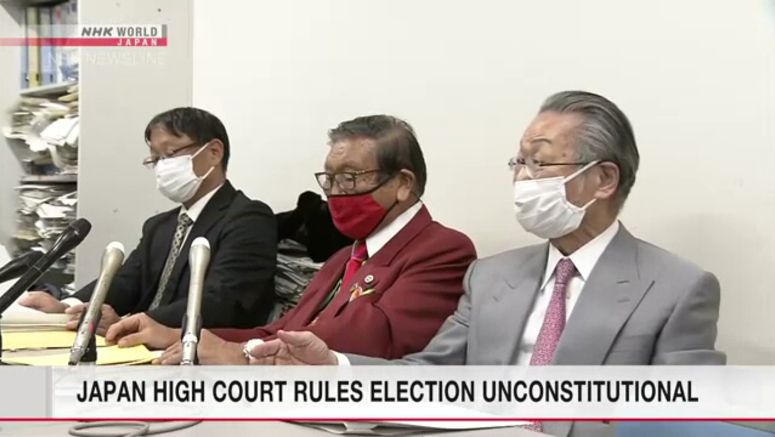Japan's July Upper House Election Ruled 'unconstitutional' For First Time

A high court in northern Japan has ruled this year's Upper House election "unconstitutional" due to the huge disparity in the value of votes. But the court stopped short of invalidating the election.
In the Upper House election held on July 10, the value of votes cast in the least-populated constituencies was more than triple that of votes in more densely populated constituencies.
Two groups of lawyers filed a total 16 lawsuits with high courts and their branches across Japan, asking them to invalidate the election as the disparity violates the equality of the value of votes.
On Tuesday, the Sendai High Court ruled the election in five northeastern prefectures "unconstitutional."
The latest court decision is the eighth on this year's Upper House election and the first to say it violated the Constitution.
Four courts previously said it was in a state of unconstitutionality, while three found it constitutional.
The Supreme Court judged the Upper House elections in 2010 and 2013 to be in a state of unconstitutionality, with a disparity in the value of votes of five or four times.
The disparity was later reduced to around three times, so the elections in 2016 and 2019 were ruled constitutional.